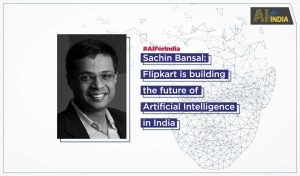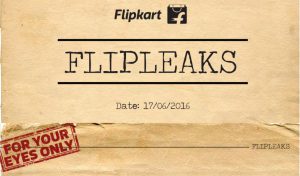They’re driven. They’re decisive. They’re unstoppable. Meet Flipkart’s women in Analytics, Data Science and Decision Science, who are scripting the future of e-commerce.
When Sofiya Kumari first thought of becoming an engineer, it was a dream that her entire village in Rajasthan hadn’t even thought was possible. Especially for a woman.
In all of the 20 houses in Kamalanagar of Rajasthan’s Jhunjhunu district, passing class 12 was a big enough challenge. The students who did attend school had to trek 15km everyday, each way, through the hot desert roads. And dropout rates were high.
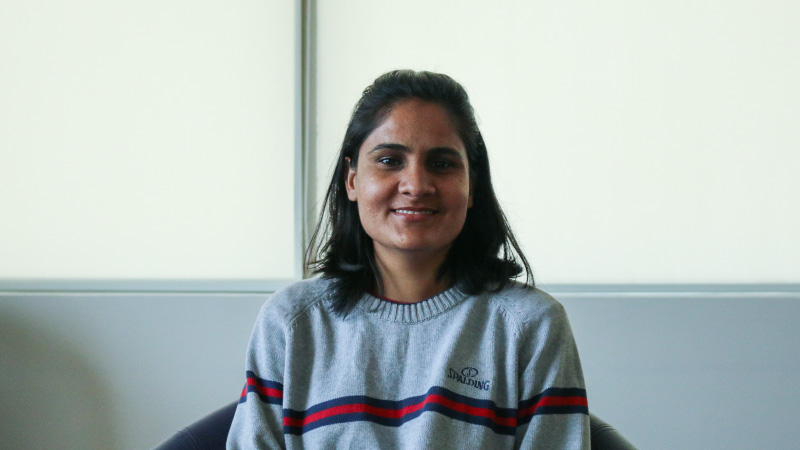
“I thought I’d become a teacher. That’s what everyone did in my village,” says Sofiya.
But, she insists, she didn’t want to become a teacher. Sofiya is soft-spoken, yet every word she speaks comes out with practiced determination. After class 10, she convinced her father to send her to Kota, a town famous and infamous in equal measure for its brutal 18-hour study schedules and cutthroat competition to top engineering entrance exams.
“That’s where everything changed. I was competing with millions of other young minds, and I had so many expectations,” Sofiya says. “When I joined engineering college in Pune, it was very difficult for me as I was from a Hindi-medium background. But looking back, I think if I could come out of all of that stronger, nothing can faze me anymore.”
Three months ago, Sofiya joined Flipkart as a Business Analyst for Category Design Operations. Hers is among the many unique stories of dogged determination of women in the fast-growing field of Analytics.
Analytics has become ubiquitous in an era that runs on information-based services — data is one of the biggest assets for any company. The holy grail of all business professionals, The Harvard Business Review, recently called Data Analytics the ‘Sexiest job of the 21st century’. Closer home, in India, it is fast becoming one of the most popular career choices for many STEM graduates, both women and men.
[clickToTweet tweet=”. @HarvardBiz called Data Analytics the ‘Sexiest job of the 21st century’. In India, it is fast becoming a popular career choice for STEM graduates, both women and men – #Analytics @Flipkart | @WorkAtFlipkart | @flipkart_tech” quote=”The Harvard Business Review recently called Data Analytics the ‘Sexiest job of the 21st century’. Closer home, in India, it is fast becoming one of the most popular career choices for many STEM graduates, both women and men.”]
Essentially, an Analyst sifts through terabytes of raw data, structures it, identifies patterns and provides insight to construct business solutions that guide key decisions. And data, especially for an e-commerce firm like Flipkart, is the foundation. Data drives everything — every business decision, big or small, is backed by it. For Flipkart, data and Analytics are literally the backbone.
“The role of an analyst is to provide deep insights that can drive product and business decisions. An analyst works in close partnership with product and business counterparts to define key problem statements or opportunities. The data-driven insights help make experiences better for our consumers, sellers or influence business planning and strategy,” says Srividhya Ramarathnam, Senior Director.
The women raising the bar
Among the army of analysts at Flipkart are women trailblazers helping steer the biggest, as well as the most basic, everyday business decisions taken by the company.
“Typically in the past, engineering has been a male-dominated field. However, we are seeing more women in analytics than in other tech fields. The skill sets needed for a career in analytics, like problem solving and managing stakeholder relationships, come naturally to a lot of women,” says Shilpi Bhabhra, Senior Manager, Flipkart Analytics. Shilpi is one of three daughters in her family, and says her mother, a math professor, who is “well, not really a feminist,” made sure that all three sisters pursued engineering.
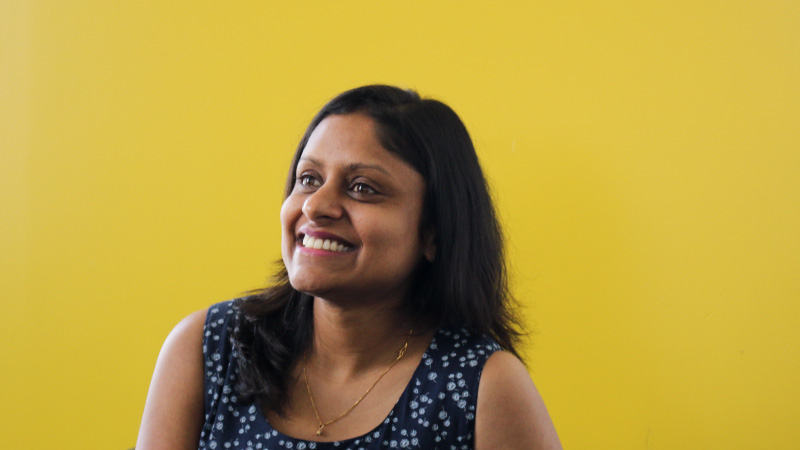
“Analytics is a great mix of both business and technology. That’s what really drew me to it,” she adds.
Problem solving is at the heart of this profession, a requirement that Lead Analyst Sanjana Pattanshetti contributes to, day in and day out. “You need to have a unique connection to both business and technology. That’s what helps you solve complex business problems,” she says. Sanjana, who moved to Bangalore from Belgaum to study engineering, spent three years as an engineer before getting a management degree to steer course towards analytics.
Sample this for just how powerful and futuristic insight from an Analyst can be for a company like Flipkart: Over three lakh customers shop with Flipkart every day and 5+ terabytes of rich data is generated daily. When a customer logs onto the Flipkart site or app, an Analyst’s study will be able to decide what products to recommend to that particular customer, what the customer is likely to buy, if the customer is likely to return the product, or even whether the customer, based on past behavior, is going to place that order at all.
At Flipkart, the women in analytics are all in agreement that it is this fast-paced, impactful work and wide scope for mobility that attracted them to the company.

“Most of the decisions at Flipkart are data-driven rather than gut-based. We also drive a lot of advanced tech-based solutions, for which we use Machine Learning,” says Senior Analyst Nivedhitha Selvam, who’s been with the Flipkart Analytics team for three years and has driven several high-impact projects for the logistics and fulfilment teams. Nivedhitha’s work guided Flipkart’s logistics arm to identify opportunities to increase shipping speed and delight millions of customers with faster delivery.
“The fact that Flipkart is leading the march into Artificial Intelligence is also incredibly exciting,” she adds.
Up-skilling, and Learning and Development are among the key focus areas for analytics at Flipkart. “Training programs on advanced Machine Learning, Artificial Intelligence, etc. are regularly conducted by INSOFE, a premier data science training provider,” says Sanjana. She ranked first in a batch of 35 participants in a recently concluded training module.
For Sofiya, who tried her hand at coding after college but found her true calling in analytics, it is the trust that Flipkart places on its employees that encourages her to do better every day. “Within a week of joining, I was given this huge responsibility to handle analytics for the electronics category. It was a big deal for me that I was given that trust and it really helped me drive big decisions for Flipkart,” she says.
According to Decision Scientist Nitika Gupta, it’s all about the impact. “As Analysts, the impact of our projects is actually tangible. We get to see how our work has helped the business and the customers. And since it’s Flipkart, and millions of people shop here, you can actually make a difference to millions! Where else can you do that?”
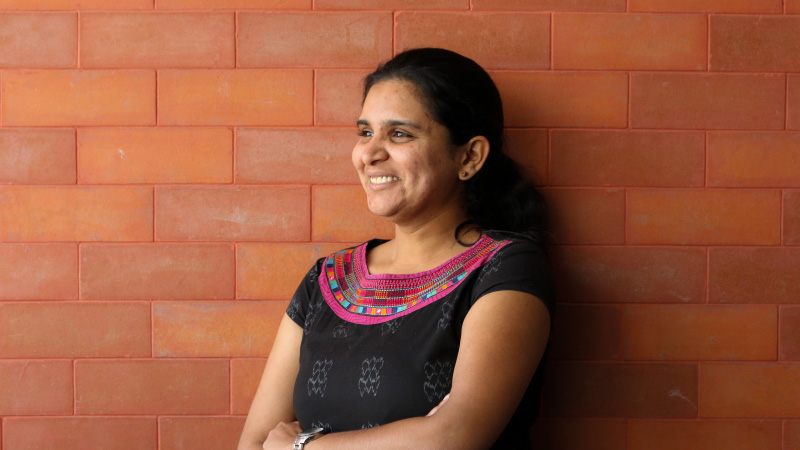
“I love how fast-paced the work and the environment is,” adds Lead Analyst Deepthi Bhavaraju.
Mobility is encouraged at Flipkart at all levels — employees either choose to go deep and specialise in a subject area or take on different roles to broaden their understanding and skills. “I personally have moved through various roles from the business side to lead Product and Marketing analytics to now heading the Fintech Product Charter at Flipkart,” says Srividhya.
What’s gender got to do with it?
It is a well-documented fact that more women are taking up analytics than any other STEM-related profession. But could analytics do better on the diversity scorecard?
“The most reputed engineering colleges in India are known to have an abysmal gender ratio, and this reflects in the workforce when a company hires from premier institutes,” explains Nitika. A few other women in analytics were also quick to voice this observation.
[clickToTweet tweet=”It is a well-documented fact that more #women are taking up analytics than any other STEM-related profession. But could #analytics do better on the #diversity scorecard? – Women in Analytics @Flipkart | @WorkAtFlipkart | @flipkart_tech” quote=”It is a well-documented fact that more women are taking up analytics than any other STEM-related profession. But could analytics do better on the diversity scorecard? “]
The IITs, famous for the brilliant minds they churn out but equally infamous for their lamentable gender ratio, recently declared that they would create at least 550 more seats for women to raise the gender ratio to 14 per cent. Globally, there has been a recent awakening among top tech companies in Silicon valley to improve diversity.
There’s more.
“Many women drop off — to pursue other streams, higher studies or even family responsibilities,” says Shilpi.
What these factors, combined with many others, often translate to is fewer women at the top, an absence that has countless repercussions for the industry. “At the top-most levels, when there are fewer women, that forum loses a chance for an extremely pertinent, and sometimes different, perspective,” stresses Nivedhitha.
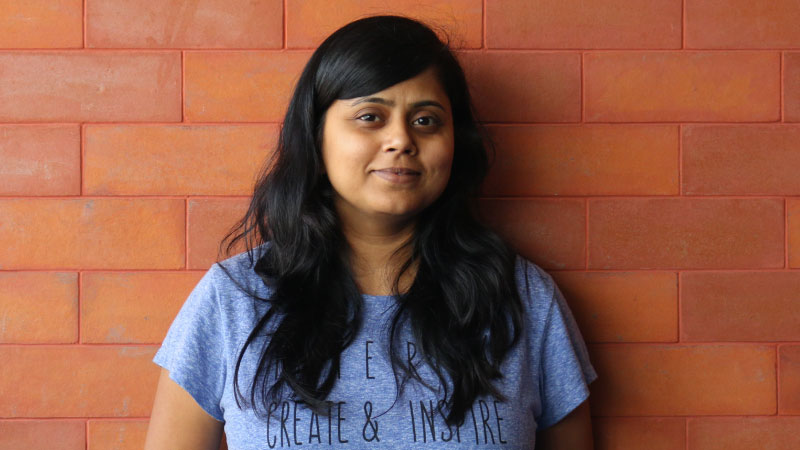
There’s another reason why female leadership is critical in ensuring more female participation in the workforce. “I think when there are fewer women at leadership levels, it leaves us with not many options for female role models or representatives. There’s also an obvious advantage for women to report to other women — they could be better predisposed to understanding the unique problems that women face on a day-to-day basis,” says Nitika.
The consensus among the women in analytics, however, is that as a career option, analytics is a field that’s all about skill. And that, especially at Flipkart, translates to meritocracy.
“I can say with confidence that there is no apparent gender bias at Flipkart,” explains Shilpi. “However, at a larger level, some unconscious biases and assumptions embed themselves in society and often work against women and their growth in any field. At a subconscious level, it is often assumed that a woman may not be able to give her 100% because she has responsibilities outside of work.”
Nivedhitha, who is an athlete and an avid badminton player, makes sure that she asserts her presence not just at work, but also other extracurricular activities. “I make sure to take part in sports day. Since I’m an athlete, I like that there’s women’s participation in extracurricular forums at Flipkart. It gives us a platform to showcase our talents.”
More than just policies
From manning the Control Tower during Flipkart’s biggest annual event, The Big Billion Days sale, to creating solutions that transform retail and commerce for billions of Indians, women are driving countless innovations that is getting Flipkart welcome attention across the world. And the company, too, is stepping up to support this powerhouse of talent.
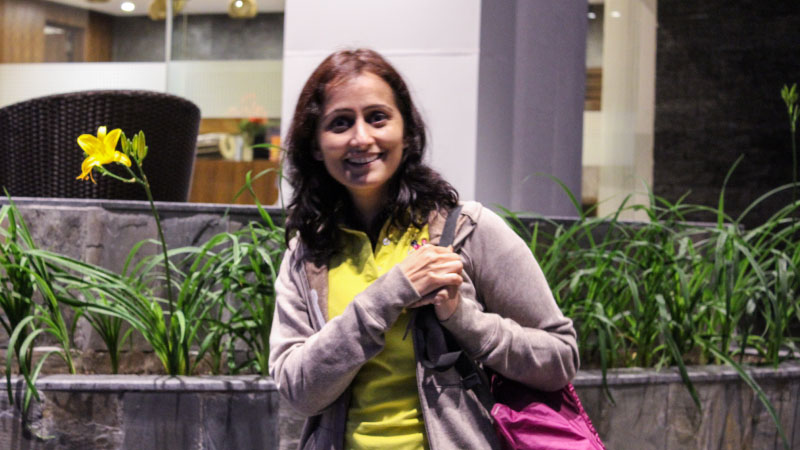
“Flipkart has one of the most amazing flexibility as well as maternity policies out there. We give all kinds of benefits to people that make it easy for them to come back and adjust to work,” says Srividhya. “It also offers flexible working times and work-from-home options to all its employees to enable work-life balance, and encourages a meritocracy driven culture to ensure a fair process and evaluations.”
Shilpi, who recently had a baby boy, was looking forward to getting back to work after her maternity break. “A lot of companies talk about flexibility, but when Flipkart says it, it really means it,” she says. “I had six months of maternity break and extended it by two months. The best part was I had complete flexibility to choose whether to extend leave or work part time or work from home. It wasn’t just a policy in words, it showed in the empathy and support I received from my team as well as seniors.”
Ask her ‘how she felt’ on coming back to the office, and she’s quick to cut you off. “Look, we women have nurtured our careers over years just like men have. I know not everybody has that luxury, but I didn’t even think about just leaving it at that. Honestly, by the last month of my leave, I was itching to get back to work,” she says with a laugh and impassioned urgency.
For Nitika, who recently moved from being a Business Analyst to to a Decision Scientist, support came in the form of the scope for mobility within Flipkart. “I’m more of an individual contributor and didn’t want to go the manager route. When I communicated this to my manager, he actually created a role for me where I could contribute more by myself and work on individual projects. It’s a flat hierarchy, which is ideal for me.”
The road ahead
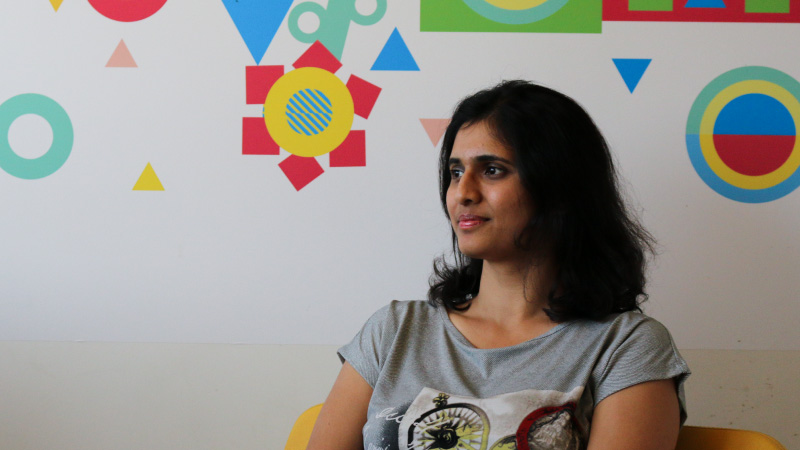
These stellar women in analytics are bucking the trend and owning the data field, but for a profession that’s growing so rapidly, efforts need to evolve just as quickly to ensure diversity.
“Women Analysts in my team have been among the top performers,” says Vijay Jayanti, a leader in the Analytics team, alluding that Flipkart’s policy of inclusive hiring aims to blend meritocracy with diversity at all levels. “I am grateful for the contributions of our women analyst superstars and it’s a privilege to work along with them,” he says.
Among the initiatives that women in analytics emphasize will help narrow gender gaps in the industry, are targeted hiring for women employees, representation of women at national and global technology and analytics conferences, and an expanded pool of colleges to hire from.
“I’m glad I chose this path,” says Sofiya. “I’m the first working woman from my village, even the first engineer from nearby villages. Now, in my village, dreams have changed.”
And if Sanjana’s words are anything to go by, and we’re confident they are, “Without exaggeration, Analytics, which is now branching out into Artificial Intelligence and Machine learning, is the future.”
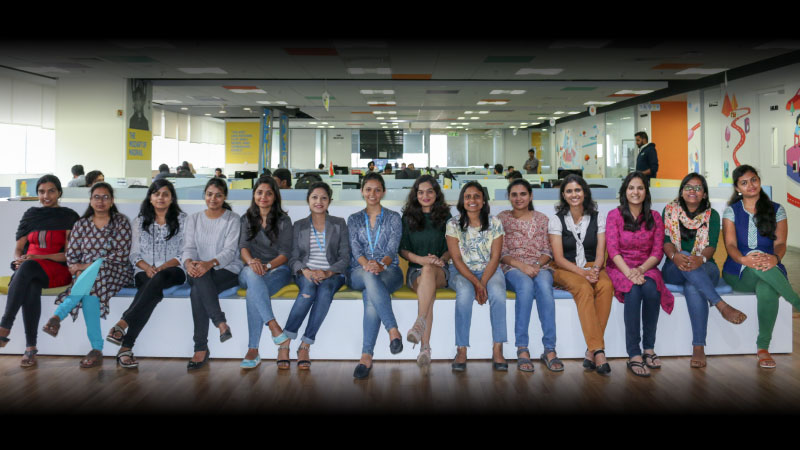
Photographs by Arjun Paul
FlipTales features stories of extraordinary Flipsters and the great work they do. Looking for jobs at Flipkart? Head over to Flipkart Careers and find your fit!



